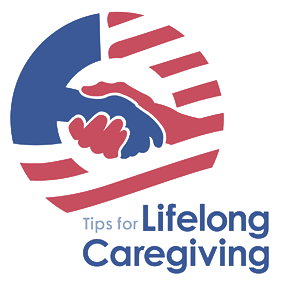Road to Work
Job Support: Programs to Help You Succeed
Once you’ve successfully landed a job and transitioned back into the workforce, it’s time to determine what types of support systems you need in order to achieve a great work/life balance. Being able to balance your family responsibilities and caregiving duties while meeting employment expectations can prove to be quite difficult at times. There are many programs out there to help you achieve this balance.
- Telework: Oftentimes, if you’ve been able to successfully identify an employer who is caregiver friendly, you can negotiate some type of telework agreement to achieve a balance. If your position permits, you may be able to work from home on certain days when your caregiver responsibilities require you to be away from your place of employment for a period of the day. Or, your employer may be able to provide you a flexible tour of duty.
- Most federal government agencies provide the opportunity to have a flexible work environment with the option to choose from a flexi-tour, a gliding tour, a variable day/week, and a maxi-flex schedule. A complete list of their flexible work arrangements can be found here. Most federal agencies also participate in assisting employees with finding and providing quality childcare or dependent care. Information about this can be found on the OPM website.
- The Department of Labor also offers a plethora of information and examples of flexible work schedules, which can be found here.
- Telehealth: Telehealth can be used as a means to enhance your access to certain healthcare services without having to travel to receive it.
- Some services, such as peer support, mental health counseling, and disease management are just a few of the services that can be provided via telehealth with providers at the Department of Veterans Affairs. These services can be available to you, or your loved one for whom you care. If you get an hour lunchbreak at your workplace and are in need of some counseling services, you can utilize telehealth for this. You can find access to information on telehealth here.
- Some services, such as peer support, mental health counseling, and disease management are just a few of the services that can be provided via telehealth with providers at the Department of Veterans Affairs. These services can be available to you, or your loved one for whom you care. If you get an hour lunchbreak at your workplace and are in need of some counseling services, you can utilize telehealth for this. You can find access to information on telehealth here.
- Caregiver Peer Support: Additionally, being able to connect with other caregivers to gather insight, different perspectives, best practices, or just have a conversation with someone in a similar situation is proven to be quite helpful for military caregivers in order to stay focused and strong to help care for their veterans.
- The Department of Veterans Affairs offers peer support services such as a Peer Support Mentoring Program to caregivers, which can be accessed from anywhere via telephone. These services can prove to be helpful once you’ve re-entered the workforce and have less time to travel to the VA for peer support services.
- Furthermore, MOAA also offers information on the Hidden Heroes of Caregiving and information on how to access peer support, which can be found here.
- Respite Care: Caregivers need a break in order to prevent caregiver burnout. Respite care can help give caregivers a break and come back to their caregiving, employment, and familial duties feeling refreshed.
- The Elizabeth Dole Foundation provides an abundant list of respite care programs that are available for caregivers to utilize.
- The Department of Veterans Affairs also offers respite care to caregivers under their geriatrics and extended care program, which you can find here.


